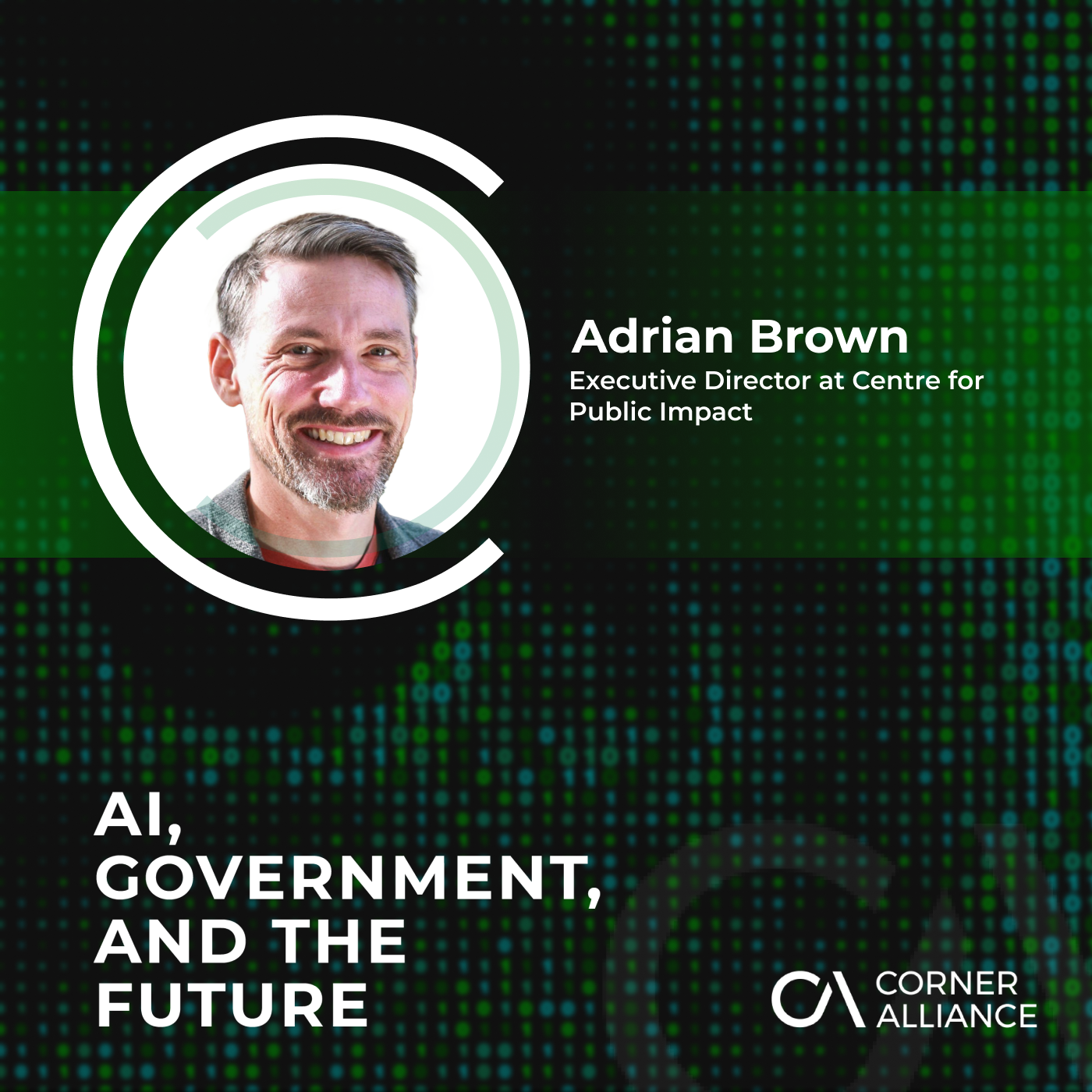AI Governance and Public Trust: Insights with Adrian Brown of Center for Public Impact
- Author
- Corner Alliance
- Published
- Wed 06 Nov 2024
- Episode Link
- https://podcasts.fame.so/e/4n92mp38-adrian-brown
Adrian Brown joins this episode to share his extensive expertise on the government's evolving role in AI development and implementation. Drawing from his experience at the Center for Public Impact, he outlines the four critical functions the government must serve: developer, user, regulator, and sense-maker of AI technologies.
The conversation delves into how governments can ensure equitable distribution of AI benefits while maintaining innovation. Adrian emphasizes the importance of adaptive regulation that can keep pace with rapidly evolving AI technologies, comparing different regulatory approaches between jurisdictions like the EU and US, and exploring their implications for global AI development.
Throughout the discussion, Adrian addresses crucial topics including AI's impact on labor markets, the "Turing Trap" in workforce automation, and strategies for building public trust in government AI initiatives. He advocates for a balanced approach that recognizes both AI's potential to enhance human capabilities and the need for thoughtful oversight to prevent societal harms.
If you enjoyed this episode, make sure to subscribe, rate and review on Apple Podcasts, Spotify and Youtube Podcasts, instructions on how to do this are here.
Episode Resources:
- Max Romanik on LinkedIn
- Corner Alliance Website
- Adrian Brown on LinkedIn
- Adrian Brown on X
- Centre for Public Impact Website
Tune in here:
- Apple - apple.co/46fxiAJ
- Spotify - spoti.fi/3Pphu7O
- bCast - bit.ly/3sVmlWP
Previous guests include: Jesse Anglen of Rapid Innovation, Maya Sherman of Embassy of Israel In India, Alex Wirth of Quorum, Mfon Apkan of Methodist University, Dr. Eva-Marie Muller-Stuler of Ernst & Young, and Christophe Foulon
Check out our Top 3 episodes:
- Harnessing AI for Social Good with Arnold Kling
- Leveraging AI for Public Policy Advocacy with Alex Wirth, Co-Founder and CEO of Quorum
- When Blockchain Meets AI with Jesse Anglen, Co-Founder and CEO of Rapid Innovation
If you are interested in joining AI, Government, and the Future as a guest, please complete this form: fame.so/cai-guest
AI, Government, and the Future is handcrafted by our friends over at: fame.so
